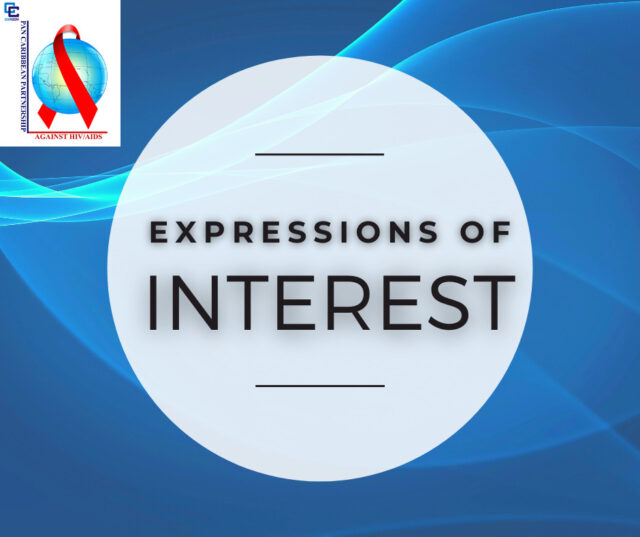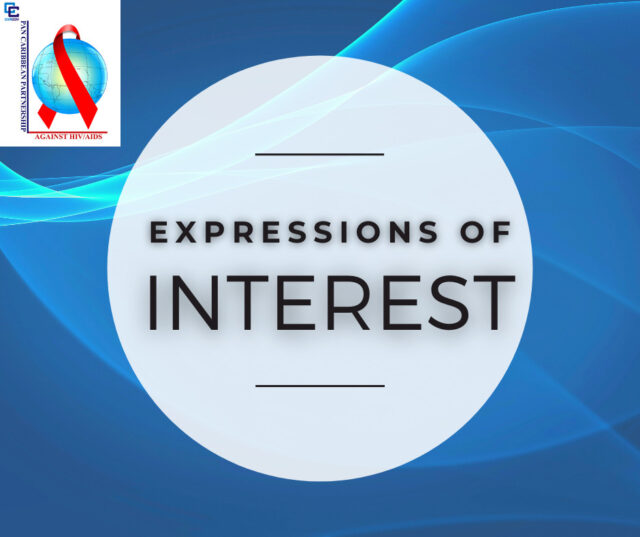CALL FOR PROPOSALS
MINI-GRANTS TO SUPPORT ADVOCACY CAMPAIGNS FOCUSED ON REDUCING THE INCIDENCE AND IMPACT OF GENDER-BASED AND INTIMATE PARTNER VIOLENCE ON KEY POPULATION GROUPS
The Caribbean Vulnerable Communities Coalition (CVC) and its partners, the Pan Caribbean Partnership against HIV and AIDS (PANCAP) and El Centro de Orientación e Investigación Integral (COIN), have received a Global Fund grant which will bring together organizations with complementary mandates, technical expertise and constituencies in a harmonized approach to leverage and support the effort of communities, civil society actors, governments and technical partners in advancing the regional HIV response. This project provides a unique opportunity to institutionalize partnerships between civil society and governments to achieve and sustain effective programmes that meet the needs of key populations (KPs) and diminish the HIV epidemic.
The project seeks to achieve the following objectives:
- To reduce structural barriers to key population services, including stigma and discrimination and gender-based violence;
- To improve knowledge generation and use of strategic information on key populations for decision-making and advocacy by communities and other stakeholders;
- To increase domestic resources for effective key population programming; and
- To mobilize resources for key population organizations.
BACKGROUND
The Universal Declaration of human rights guarantees every human equal and inalienable rights based on dignity, equality, and mutual respect (UN General Assembly 1948). Violence against women (VAW) is not only a violation of human rights; it is rooted in gender inequality, as well as a public health problem, and an impediment to sustainable development… Gender-Based Violence (GBV) includes physical, sexual, economic, and emotional abuse. GBV also includes discrimination that violates human rights, such as being denied basic necessities; being arbitrarily stopped, detained, or incarcerated; and being refused healthcare and other services (UNFPA et al. 2015). Adolescent girls, young women, women belonging to ethnic and other minorities, transwomen, and women with disabilities face a higher risk of different forms of violence. GBV has serious consequences for women’s health and wellbeing, ranging from fatal outcomes, such as homicide, suicide and AIDS-related deaths, to non-fatal outcomes such as physical injuries, chronic gynaecological problems, unwanted pregnancy, miscarriage, and sexual dysfunction. Low education, exposure to violence in childhood, unequal power in intimate relationships, and attitudes and norms accepting violence and gender inequality increase the risk of experiencing intimate partner violence and sexual violence. Low education, child maltreatment or exposure to violence in the family, harmful use of alcohol, attitudes accepting of violence, and gender inequality increase the risk of perpetrating intimate partner violence (World Health Organization 2019). Many people think of GBV only in relation to women and girls. Studies show that much of the violence experienced by MSM and TG, particularly intimate partner violence (IPV) and sexual coercion, is similar to that experienced by women. Studies show that among MSM, there is a high prevalence of Intimate Partner Violence (IPV) and that exposure to IPV as a victim is associated with increased odds of substance use, depressive symptoms, being HIV positive, and unprotected anal sex (UAS) among MSM.[i] MSM and TG also experience violence at the hands of their families, friends, fellow students, teachers, health professionals, and the wider community. This violence occurs in the context of extreme forms of stigma and discrimination, which can be equated with emotional and psychological abuse.[ii]
Transphobia and gender-based violence (GBV) deprive transgender (Trans) women not only of their fundamental rights but also of their very personhood (United Nations Development Programme et al. 2016). Transgender (Trans) women experience gender-based violence (GBV) throughout their lives, which impedes their access to services and contributes to poor health outcomes and quality of life. A 2016 Study conducted in El Salvador, Trinidad and Tobago, Barbados, and Haiti found that a high proportion of transgender women experienced GBV in education (85.1%), healthcare (82.9%), from police (80.0%), and other state institutions (66.1%). Emotional abuse was the most common in all contexts. However, participants also experienced economic, physical, and sexual violence and other human rights violations based on their gender identity and expression. The research found that service providers not only failed to meet the specific needs of Trans women but also discriminated against them when they sought services, exacerbating their economic, health, and social vulnerability.[iii]
Experiences of violence increase the risk of key populations acquiring HIV, and deeply affect their desire and ability to obtain health care, get tested for HIV and adhere to HIV treatments. In most countries in the Caribbean, there is no legal recognition of transgender people’s affirmed gender identity. Without official documents that recognize their gender; harassment and stigmatization; limited access to protection, justice and redress; and inadequate provision of health care services. Where information is available, it indicates significantly higher rates of HIV prevalence. Estimates show that HIV prevalence for transgender women in the region range from 8% to 31% and there are few support programmes that address their specific needs. Transgender women are also more susceptible to violence, including physical and sexual violence; transgender women are often denied access to basic rights, including the right to health, education, justice and social welfare.
GBV and IPV are pervasive in the Caribbean and requires urgent action at the highest level. In addition, data indicate significantly higher rates of HIV prevalence among key populations in the Caribbean and the limited access to support programmes that address their specific needs. Understanding and addressing the broader gender-based aspect of this problem will also allow us to strengthen the networks and combine the resources of the groups that are working to dismantle gender-based discrimination and advance the human rights of sexual and gender minorities. We will not make sustainable gains against the HIV epidemic if we do not also address the violence that key populations experience at the hands of family, community members, health care providers and police.
All people have an equal right to live free from violence, persecution, discrimination and stigma. International human rights law establishes legal obligations on States to ensure that every person, without distinction, can enjoy these rights. By developing a more inclusive view, we can help ensure that policies, preventive efforts and response systems benefit all those who experience such violence. For many Key Population members these rights exist only in form, not in substance. They are denied not only fundamental rights to equality, dignity, health and security of being, but their very personhood.
FUNDING PRIORITIES/AREAS OF INTEREST
CVC is pleased to announce funding for small grants to support Advocacy Campaigns inclusive of associated/related actions in support of key population groups, specifically women and girls, transwomen and men who have sex with Men. The campaign should focus on the following general areas:
- to improve laws and policies focused on GBV and/or IPV or to promote the development of strong zero-tolerance policies
- strengthening the health sector’s response to GBV and IPV, including screening for abuse, risk assessment, providing medical care, counselling referrals to a network of service providers, and community-focused prevention initiatives.
- To improve intersectoral coordination and monitor progress in developing national plans and policies on violence – creates commitment and political space for dialogue between civil society and the state, e.g. scorecards
- Development of community-based networks for coordinating services to victims, improving access to justice and promoting violence prevention – to enhance the quality of care provided to survivors, and help mobilize public support for survivors and decrease tolerance of violent behaviour, e.g. coordination meetings
- Community-based educational activities to:
- increase knowledge of legal and social rights and empower persons to seek help for abuse; and
- promote community-wide changes in attitudes and practices related to gender norms and violence-related attitudes and behaviours against select KP groups.
- Social media campaigns designed to document, disseminate and promote services for survivors of GBV and IPV provided through multi-sectoral initiatives include telephone hotlines, emergency shelters, police intervention, legal assistance, counselling, psychological care, support groups, income-generation programmes, etc.
WHO IS ELIGIBLE TO APPLY
Civil Society Organizations serving key populations based in Belize, Suriname and Trinidad and Tobago.
FUNDING LIMIT
Each organization may apply for an award of maximum US$5,000 USD to support project-related costs for up to four (4) months. Allocations for salaries, stipends, incentives and overheads should not exceed 40% of the total budget for the grant.
DESCRIPTION OF THE ADVOCACY CAMPAIGN
- Give the background to the preparation of the action, in particular on the sector/country/regional context (including key challenges).
- Explain the objectives of the action.
- Describe the key stakeholder groups, their attitudes towards the action and any consultations held.
- Briefly outline the objectives of the proposed advocacy action, indicating the expected output(s), outcomes(s) and impact as well as underlying the main risks and assumptions towards their achievement.
- Briefly outline the types of advocacy actions proposed, including a description of linkages/relationships between the proposed activities.
- Explain how the action will mainstream relevant cross-cutting issues such as the promotion of human rights, addressing GBV and IPV, combating stigma and discrimination, and reducing related structural barriers to health, justice and /or social protection services for key population groups.
REVIEW PROCESS
All proposals will be considered and reviewed by a Committee, which will consider the organization’s past grant performance and proposal for strengthening or expanding its current work.
Project proposals will be reviewed and scored against the criteria outlined below:
- Relevance: Are objectives based on good evidence as to which kinds of intervention are most effective? Does the project target a clear population or sub-population? (e.g. transgender sex workers, as opposed to sex workers in general)
- Efficiency: Are available financial and other resources (including collaboration and resource-sharing with partners and volunteer contributions of labour, expertise and material) being used to good advantage? Does the project use resources creatively and get the biggest “bang for the buck?”
- Sustainability: Does the proposal identify how the project’s outcomes/outputs will be sustained in the future, beyond CVC support?
- Rights-focused: Is the project rights-based? Does it promote the human rights of vulnerable groups? Does it refer to the international human rights framework?
- Leverage: Will this grant result in outside support or government buy-in?
- Strength of plan and measurable outcomes: Does the proposal have a clearly defined plan of action with measurable outcomes for success?
- Documentation: Does this proposal include a reasonable plan for communicating the project’s successes and the lessons learned?
- Partnerships/Collaborations: Does the project reflect collaboration between multiple groups, especially those with different levels of capacity and expertise, including government?
CONFIDENTIALITY AND COMMUNICATIONS
CVC respects the applicant’s privacy and is committed to protecting from disclosure any confidential or proprietary information contained in a submitted proposal. While we will make every effort to ensure confidentiality in these situations, CVC cannot guarantee complete confidentiality and/or be held liable for the disclosure of information that causes harm to individuals or groups associated with funded projects.
Groups should be aware that any information provided carries the risk of being shared publicly through open dialogue about funding priorities, peer review processes, and communications about the project, decisions, and reported outcomes. Submission of a funding application is deemed to indicate the applicant’s understanding and acceptance of these risks.
REQUIREMENTS AND RESTRICTIONS
CVC seeks to support quality and accountable programs. Therefore, all organizations funded through this grant-process will be required to provide monthly, mid-term and final reports and will be required to utilize the community web-based M&E platform and database designed by CVC specifically for its partners.
Organizations should be able and ready to document appropriate financial and accounting controls, including measures to prevent duplicated use or misappropriation of funds. PANCAP/CVC/COIN will provide close technical support and financial oversight of all mini-grants awarded.
SUBMISSION OF APPLICATIONS
Please submit all applications to programms@cvccoalition.org.
Please access application documents here: https://drive.google.com/drive/folders/1ePDIdu7mDopX7vz3VlOgSDAMDzJXIpkT…
Please include the subject line – Advocacy Campaign Grant Proposal. All applications must be received no later than Thursday, 25 March 2021.
[i] Buller AM, Devries KM, Howard LM, Bacchus LJ. Associations between intimate partner violence and health among men who have sex with men: a systematic review and meta-analysis. PLoS Med. 2014;11(3):e1001609. Published 2014 4 March. doi:10.1371/journal.pmed.1001609
[ii] Betron, M. and E. Gonzalez-Figueroa. Task Order 1. 2009. Gender Identity, Violence, and HIV among MSM and TG: A Literature Review and a Call for Screening. Washington, DC: Futures Group International, USAID |Health Policy Initiative, Task Order 1.
[iii] Lanham M, Ridgeway K, Dayton R, et al. “We’re Going to Leave You for Last, Because of How You Are”: Transgender Women’s Experiences of Gender-Based Violence in Healthcare, Education, and Police Encounters in Latin America and the Caribbean. Violence Gend. 2019;6(1):37–46. doi:10.1089/vio.2018.0015
For more information, CLICK HERE.










